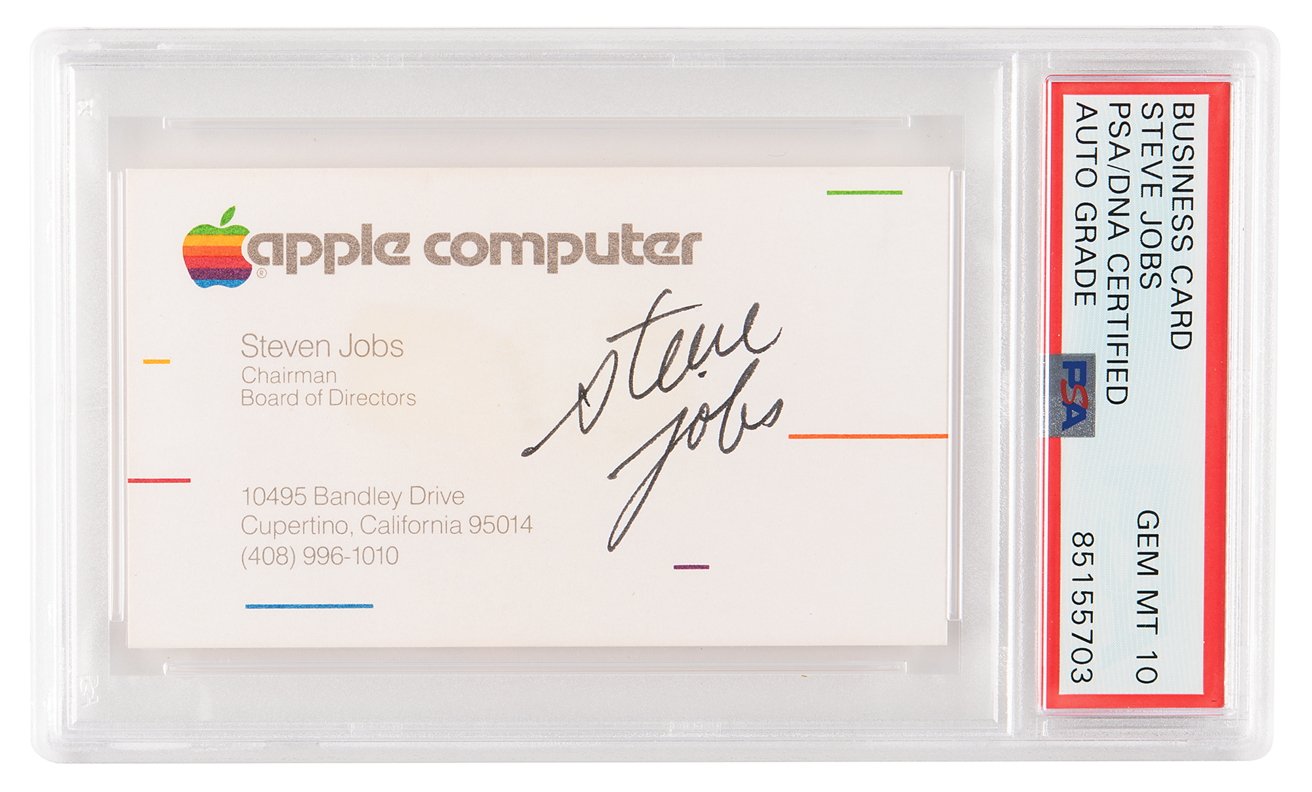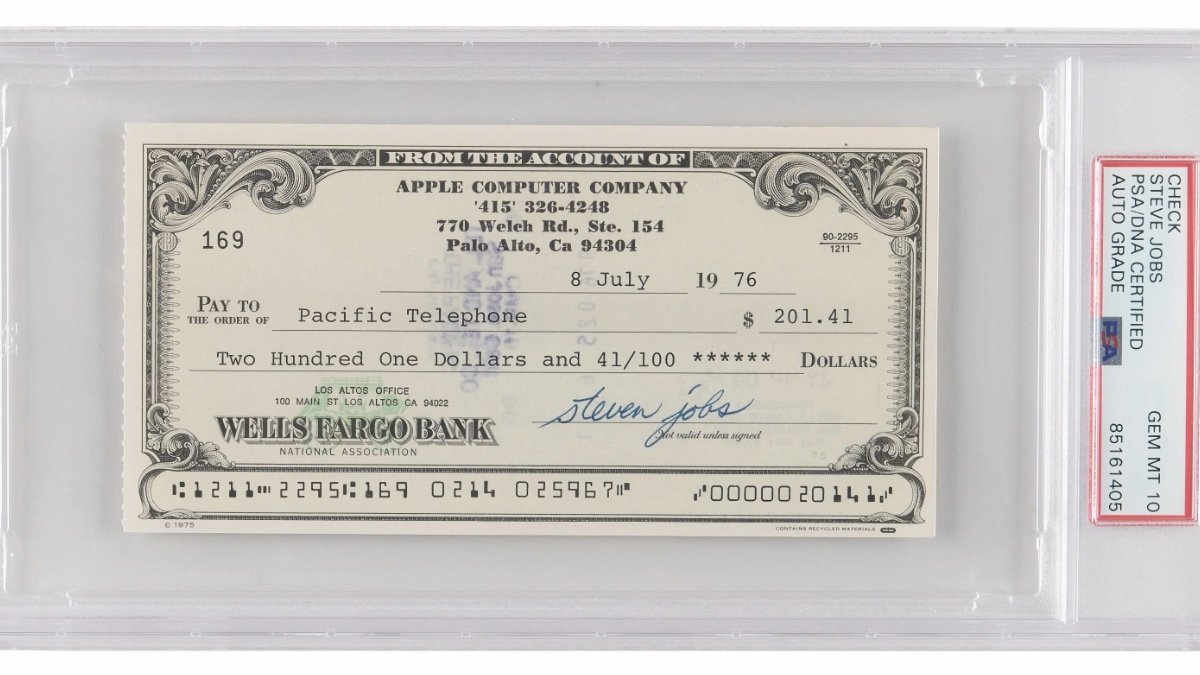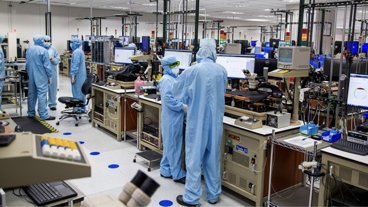Maybe we should have saved some of our old Apple gear. RR Auction's "Steve Jobs and the Apple Computer Revolution" auction has wrapped up, and collectors are scoring Apple-specific memorabilia at a premium.
The auction featured items from the early days of computing and video games, and boasted multiple Steve Jobs autographed items.
The biggest seller was a Steve Jobs-signed business card circa 1983. At most, five business cards signed by Jobs from any era have been authenticated by PSA/DNA. It sold for an impressive $181,183.
Also part of the auction was a check signed by Steve Jobs, payable to Pacific Telephone, dated July 8, 1976. The check was sent from the address "770 Welch Rd., Ste. 154, Palo Alto," which marks the first official address of Apple. It sold for $66,069.
Other items in the auction included:
- A sealed-in-box 4GB first-generation iPhone, sold for $147,286
- Apple-1 signed by Steve Wozniak, sold for $323,789
- Apple prototype mouse from 1984, sold for $14,616
- Apple Videopad 2 Mockup prototype, sold for $26,488
- 13 G3 iMacs, sold for $11,229
- Two Apple Watch Hermes Series 0, sold for $9,375 and $10,865
In December, a check signed by Steve Jobs in 1976 hit the auction block. The check was written for a $4.01 purchase at RadioShack, and sold for $46,063.
 Amber Neely
Amber Neely









 Andrew Orr
Andrew Orr

 Marko Zivkovic
Marko Zivkovic
 William Gallagher and Mike Wuerthele
William Gallagher and Mike Wuerthele



 Mike Wuerthele
Mike Wuerthele








6 Comments
How do they know if it's real? The "s" looks different than many of his signatures online.
If using all caps is shouting, does no caps mean whispering?